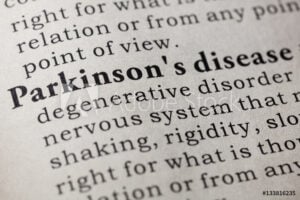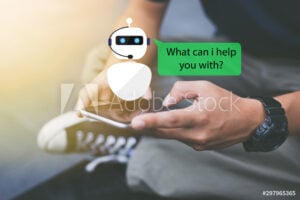Despite widespread concern that new technologies are negatively impacting humans across the world, the reality is that these advances are having a tangible impact for good. Tim Sherwood looks at some of these innovations from reducing food-waste and driving efficiency in recycling to alleviating suffering for those with debilitating diseases.
Technology has been the driving force behind many of humanity’s most significant developments. From transport and communication to power and industry, the world would be a very different place without many of the innovations we’ve seen in the last decade alone. (Read my colleague Song Toh’s recent two-part blog to learn more about some of these innovations.) In the last few years in particular, there has been a real focus on how technology can be used for good. It’s been inspiring to see a whole new generation of tech start-ups crop up, focusing their energies on developing IoT applications, sensors and devices to monitor all kinds of physical actions and activities to address a range of humanitarian, social and environmental issues. For example, Aclima uses mobile and stationary sensors to measure air pollution at a hyperlocal level; Grind2Energy uses IoT sensors to ensure that its food-waste recycling system is as efficient as possible; and farmers now have a wealth of technology options available to them, including Cowlar to monitor livestock, Semios for more effective crop management, and Smart Elements to record everything from soil moisture content to water tank levels.
been inspiring to see a whole new generation of tech start-ups crop up, focusing their energies on developing IoT applications, sensors and devices to monitor all kinds of physical actions and activities to address a range of humanitarian, social and environmental issues. For example, Aclima uses mobile and stationary sensors to measure air pollution at a hyperlocal level; Grind2Energy uses IoT sensors to ensure that its food-waste recycling system is as efficient as possible; and farmers now have a wealth of technology options available to them, including Cowlar to monitor livestock, Semios for more effective crop management, and Smart Elements to record everything from soil moisture content to water tank levels.
Making sense of the data humanly possible to process and analyse – which is where artificial intelligence (AI) and machine learning (ML) come in. These technologies can crunch numbers at a rate that humans can never hope to compete with, making it possible to identify trends and patterns that would otherwise take an age to find."Enhanced IoT connectivity has led to massive amounts of data being captured, which presents challenges as well as opportunities when it comes to its management and turning it into actionable insights."
 This, of course, can be helpful to businesses of all kinds, but tech-for-good start-ups such as climate forecaster Cervest are using it to help give a better understanding of environmental issues. Cervest’s Earth Science AI platform uses probability theory, satellite imagery and geoscience to give early warnings concerning extreme weather events and provide insights into how the earth’s natural resources will respond to environmental changes. This could revolutionise global food systems and make production more sustainable. Elsewhere, Medopad, a London-based digital healthcare company, is using AI and predictive analytics to conduct trials into the early identification of complications related to various serious illnesses, including cancer and heart disease. One of its first projects, a partnership with Chinese company Tencent, involves a motion-capture system that can detect and assess joint movements and facial features of Parkinson’s sufferers in real time. It can identify the frequency, range and intensity of movement, without requiring the patient to travel to a clinic for assessment. Medical professionals can then carry out a consultation remotely.
This, of course, can be helpful to businesses of all kinds, but tech-for-good start-ups such as climate forecaster Cervest are using it to help give a better understanding of environmental issues. Cervest’s Earth Science AI platform uses probability theory, satellite imagery and geoscience to give early warnings concerning extreme weather events and provide insights into how the earth’s natural resources will respond to environmental changes. This could revolutionise global food systems and make production more sustainable. Elsewhere, Medopad, a London-based digital healthcare company, is using AI and predictive analytics to conduct trials into the early identification of complications related to various serious illnesses, including cancer and heart disease. One of its first projects, a partnership with Chinese company Tencent, involves a motion-capture system that can detect and assess joint movements and facial features of Parkinson’s sufferers in real time. It can identify the frequency, range and intensity of movement, without requiring the patient to travel to a clinic for assessment. Medical professionals can then carry out a consultation remotely.
One of the most common day-to-day uses of AI at the moment is in chatbots, which are most commonly encountered in customer service situations. But as well as helping you to book a flight, choose a wine to go with your dinner, order a pizza, or even chat with Einstein, chatbots are increasingly being used for social good too. DoNotPay, a smartphone-based chatbot originally designed to help people contest parking fines, has also been used to provide refugees with legal advice and help them to complete and submit assistance and residence forms. There are sometimes fears that these kinds of technologies will replace human beings in the workplace but with"Similar technology has also been used to help people with autism interact in social situations; help verify and validate information and minimise bias; manage infrastructure and logistics; and even fight against elephant poaching in Africa."
 philanthropic pursuits often underfunded, investing in them for the long term can help to ease the burden on overworked staff, particularly in the healthcare industry. When more than half of the world’s population doesn’t have access to basic healthcare, mental health assistance often gets forgotten – but there are also numerous examples of chatbots being used for mental health treatment. Woebot is based on the principles of cognitive behavioural therapy, which research suggests can be just as effective when delivered over the internet as face-to-face. The chatbot, which is available for both Android and iOS smartphones, provides techniques that are proven to help reduce symptoms for people suffering from anxiety and depression. The fact that it’s always available, at any time of the day or night, is particularly key. Woebot isn’t alone either. In 2019, many charities submitted chatbot proposals to Tech For Good in the hope of securing funding.
philanthropic pursuits often underfunded, investing in them for the long term can help to ease the burden on overworked staff, particularly in the healthcare industry. When more than half of the world’s population doesn’t have access to basic healthcare, mental health assistance often gets forgotten – but there are also numerous examples of chatbots being used for mental health treatment. Woebot is based on the principles of cognitive behavioural therapy, which research suggests can be just as effective when delivered over the internet as face-to-face. The chatbot, which is available for both Android and iOS smartphones, provides techniques that are proven to help reduce symptoms for people suffering from anxiety and depression. The fact that it’s always available, at any time of the day or night, is particularly key. Woebot isn’t alone either. In 2019, many charities submitted chatbot proposals to Tech For Good in the hope of securing funding.
"Ideas included chatbots to help bereaved children, HIV patients, people suffering from bipolar disorder, and young people with mental health issues."
 Sometimes it can be hard to justify investing in products that don’t directly contribute to increased profits but when these technologies have the potential to improve the lives of so many people across the world, financial concerns shouldn’t be allowed to dominate the thinking surrounding their development.
There’s also great value in data, meaning companies that collect it must be encouraged to make their findings available for the greater good rather than selling it to the highest bidder. As they get more popular the possibilities for their deployment become more numerous – and as the costs involved go down the impact will only go up. Technology is often portrayed to be the catalyst for a dystopian society but, just as steam railways or x-rays revolutionised the world in a way which could never have been anticipated, modern day developments have the potential to transform lives and societies.
Read part two of Song Toh's blog exploring the last decade's tech triumphs in tech here.
Sometimes it can be hard to justify investing in products that don’t directly contribute to increased profits but when these technologies have the potential to improve the lives of so many people across the world, financial concerns shouldn’t be allowed to dominate the thinking surrounding their development.
There’s also great value in data, meaning companies that collect it must be encouraged to make their findings available for the greater good rather than selling it to the highest bidder. As they get more popular the possibilities for their deployment become more numerous – and as the costs involved go down the impact will only go up. Technology is often portrayed to be the catalyst for a dystopian society but, just as steam railways or x-rays revolutionised the world in a way which could never have been anticipated, modern day developments have the potential to transform lives and societies.
Read part two of Song Toh's blog exploring the last decade's tech triumphs in tech here.